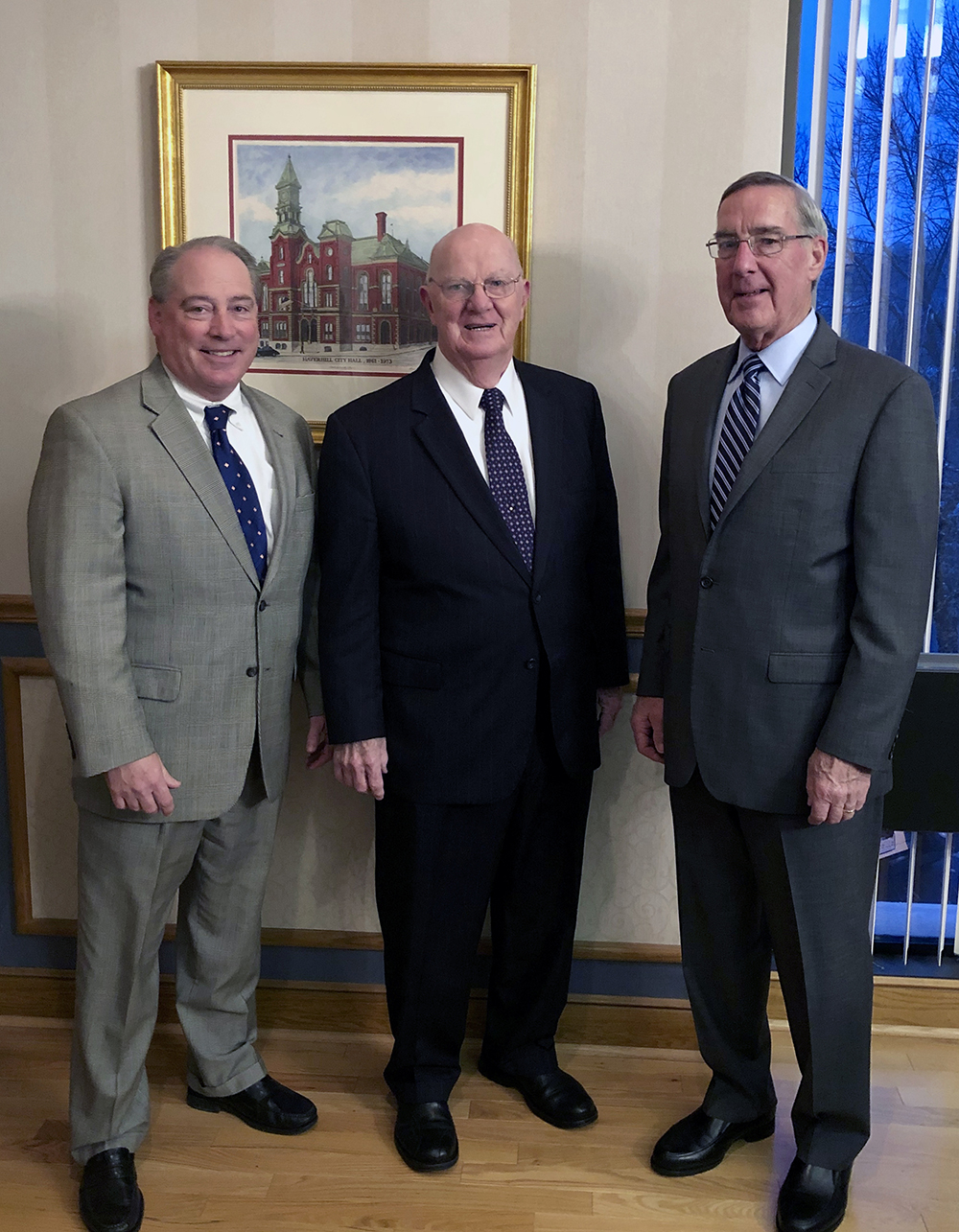Mortimer named chairman of the board of Haverhill Bank

Thomas Faulkner and Duncan Farmer.
Haverhill, MA Thomas Mortimer has been named chairman of the board of Haverhill Bank following the retirements of two longtime board members.
Mortimer, who was named president and CEO in 2010, adds chairman to his title with the retirement of Thomas Faulkner after nearly 50 years of service to the institution. During the bank’s recent annual meeting, Faulkner and Duncan Farmer retired from Haverhill Bank’s board of directors after more than 60 years of combined service. Mortimer said he has relied on Faulkner and Farmer’s collective wealth of experience and finds their years of community service inspirational.
“Haverhill Bank has thrived over 140 years in service to its customers because of the never-ending commitment and institutional knowledge of devoted businessmen like Tom and Deke,” said Mortimer. “Faulkner’s guiding hand, in particular, over 50 years has ensured a continuity of mission and devotion to meeting depositors’ needs. I hope I continue the ‘community banker’ label that Tom so epitomized.”
Faulkner, who served on the board for 40 years, joined the bank as assistant treasurer in 1971. He was promoted to president in 1980 where he remained until he retired from day-to-day service and was elected chairman in 2010.
During Faulkner’s tenure, Haverhill Bank introduced automated teller banking locally, opened two branches and successfully navigated mergers with Whittier Co-Operative Bank and Northeast Community Credit Union, a rare bank-credit union consolidation. Faulkner has also held leadership positions on the boards of the Greater Haverhill Chamber of Commerce, Haverhill YMCA, Greater Haverhill Foundation, Sacred Hearts School board and Visiting Nurses Association of Haverhill.
“I have been blessed to have the support of the community over nearly five decades of change and forward momentum in Haverhill,” Faulkner said. “When I arrived in Haverhill, the city was in the midst of urban renewal. Haverhill Bank showed leadership during that tumultuous era by buying one of the vacant parcels and building the bank’s first permanent headquarters. I am pleased to have worked with so many over the years whose sole motivation was Haverhill’s success.”
Farmer served in the U.S. Army Reserves for six years before attending Boston’s New England Institute for Funeral Service. He was elected to the bank’s board of directors in 1997 and has served on its finance committee. Farmer has also served on the boards of Bethany Homes, Haverhill Kiwanis and National Selected Morticians. He is a past master of Saggahew Lodge and continues to support the Salvation Army, AHEPA of Haverhill, First Church of Christ Bradford and the Bethany Bereavement Center, which he founded in 1995. Farmer lives in Bradford with his wife Brenda and has three children and eight grandchildren. Mortimer said, “You really can’t move forward unless you surround yourself with directors such as Deke.”
Preservation of Affordable Housing secures $23.5 million in financing from Rockland Trust and Citizens Bank


Conn. hospitality market: A technical appraisal perspective on market dynamics and valuation challenges (2019-2025)









